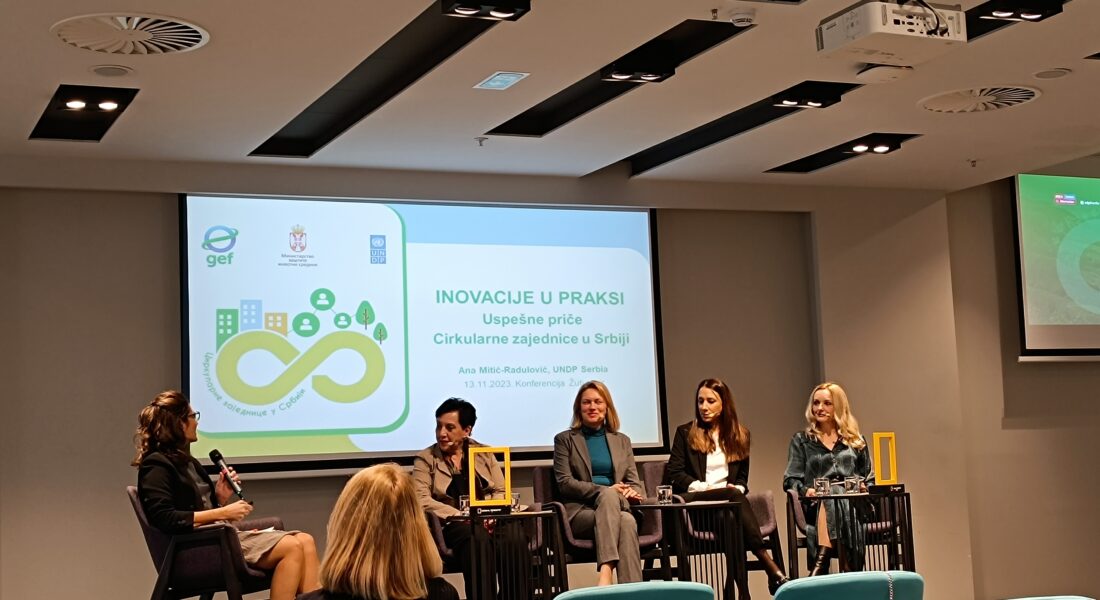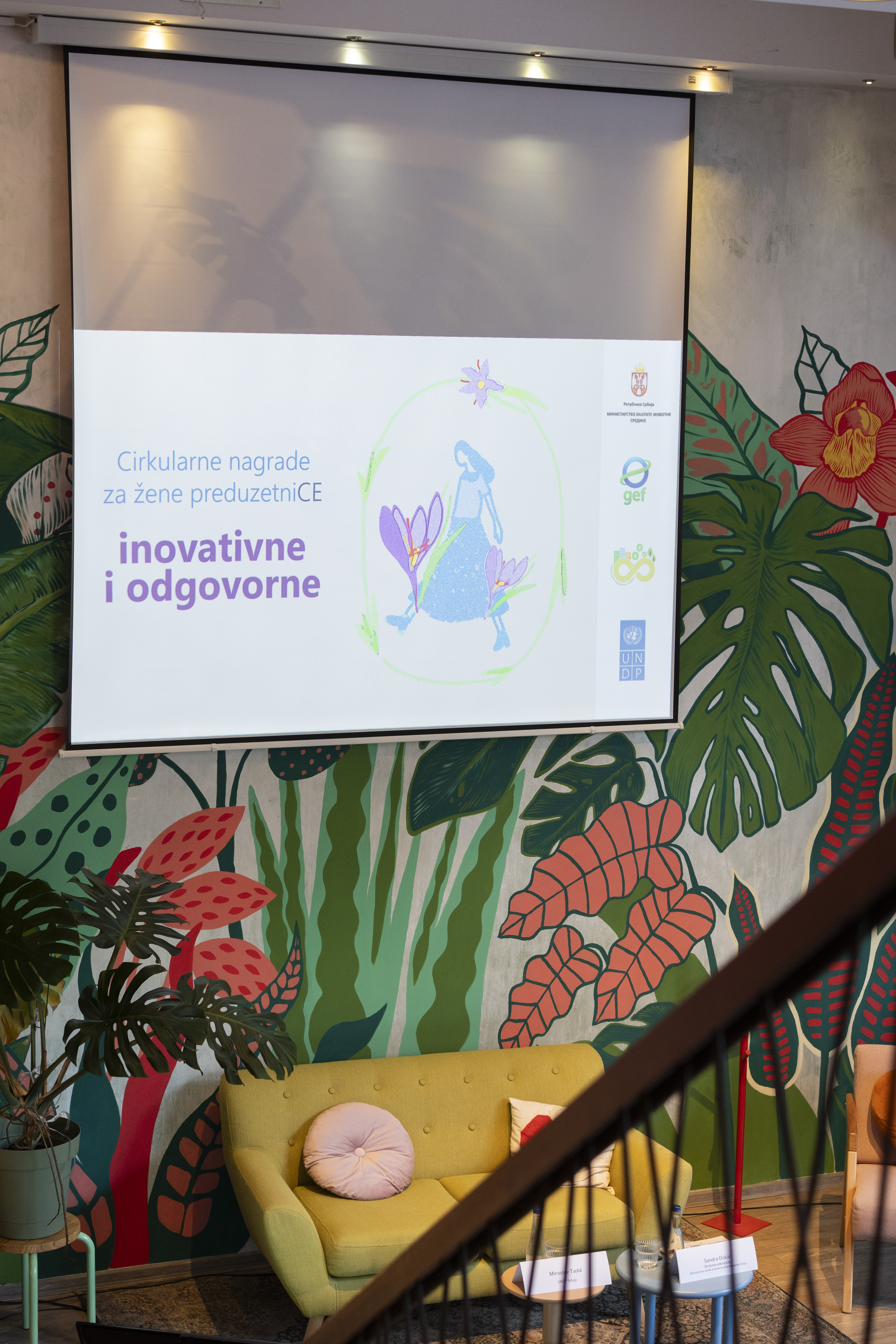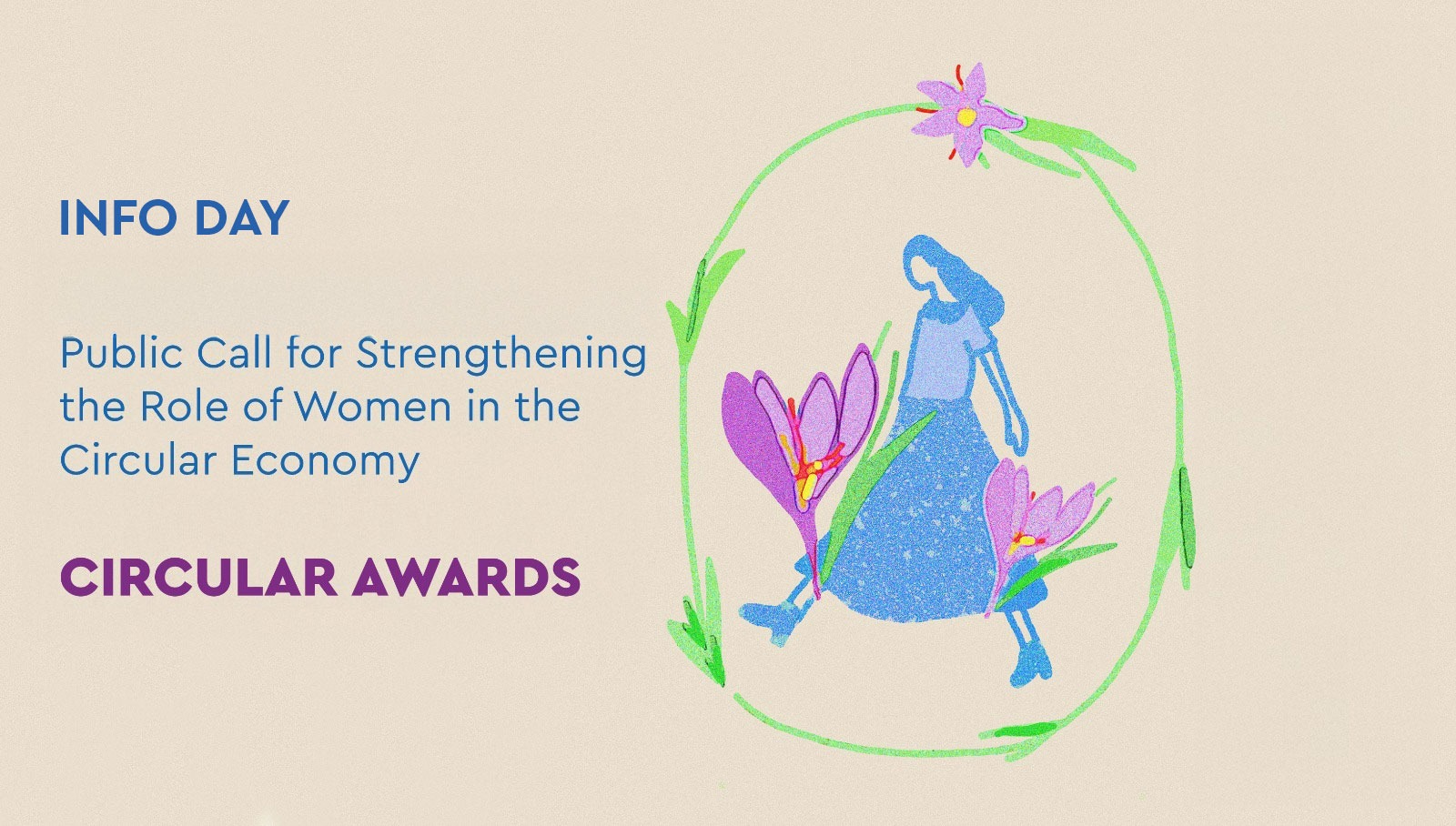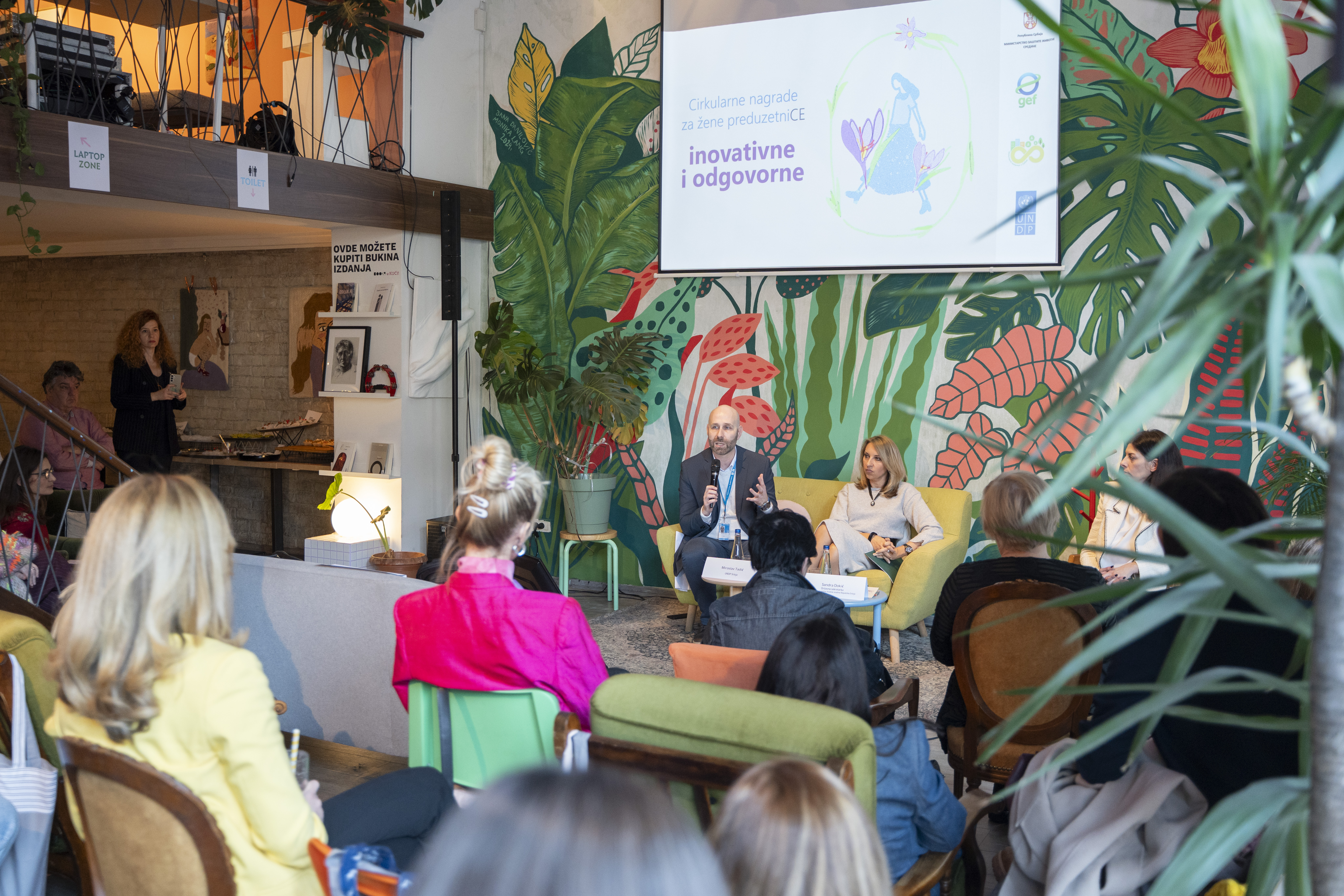For the fourth time in a row, National Geographic Serbia organized a conference on the circular economy, addressing its challenges and showcasing examples of good practice under the theme “Think Sustainably, Round up Business.” Experts and representatives from relevant institutions spoke at the event. This conference concluded another cycle of the “Yellow Frame” project, which in 2023 focused on the circular economy, treating waste as a valuable resource, and exploring ways to prevent its generation.
After introductory speeches by Milana Petrović, editor of National Geographic Serbia, Sandra Dokić, State Secretary of the Ministry of Environment, and Fabrizio Andreuzzi, Deputy Permanent Representative of UNDP in Serbia, the audience attended a session supported by the United Nations Development Program (UNDP).
The “Innovation in Practice” session, highlighting the success stories of the Circular Community in Serbia, was moderated by Ana Mitić-Radulović, a circular economy analyst at UNDP. Her interlocutors were women who received support from UNDP to develop their small businesses and innovative ideas. Speakers included Sanida Klarić, founder of the BioIdea social franchise, Miljana Mirković, researcher from the Institute of Nuclear Sciences “Vinča”, Marina Cvijanović, director of Eko Bio Invest, and Ljiljana Vraneš, who represented the sustainable tourist complex Gralo.
It was concluded that the circular economy presents a significant development opportunity for small businesses, particularly those run by women. Innovations are crucial for developing circular businesses, cooperation between different sectors is essential, and support from large institutions and access to green financing are necessary.
The first panel of the conference showcased ideas and innovations in business and examples of good practice. The second panel focused on nature restoration, discussing how businesses can be organized to minimize pollution. The third panel, titled “Consumption and Packaging – Impact of Consumers on the Environment and How Things Can Be Turned Around,” presented practical examples to inspire consumers to change their behavior and for companies to adopt sustainable business models.
Attendees agreed that every step, big or small, is important in committing to the mission of caring for the planet, ensuring it remains a common home for future generations.
The “Yellow Frame” project was recognized and supported by numerous companies and institutions adapting their businesses to the principles of the circular economy. These organizations aim to share their experiences, inspire, and educate those considering this business model.



